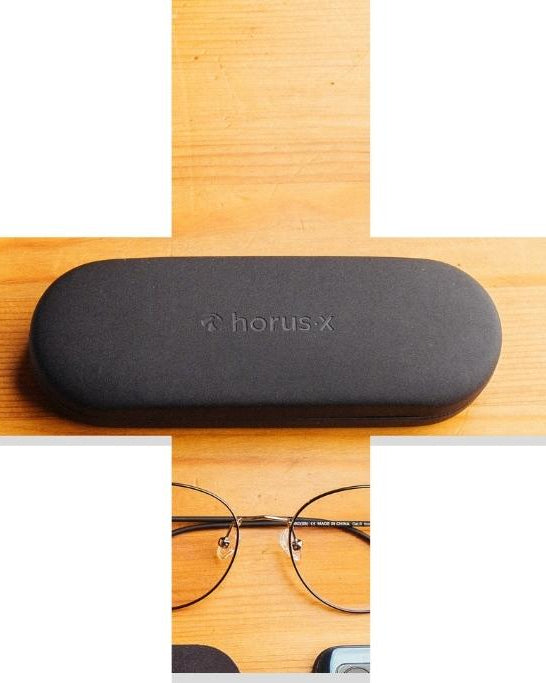Jet lag occurs when our body clock has trouble adjusting to different time zones. It can be particularly severe for people who suffer from sleep disorders and is mostly associated with long-distance air travel and can cause feelings of intense fatigue. When your sleep pattern is disturbed it can make you feel like a zombie, but there are plenty of ways to fight it.
Jet lag is like a video game boss: if you don’t prepare for it, you won’t be able to defeat it. But don’t worry, you’re not going into battle unarmed! We’ve put together a complete guide to help you conquer jet lag so that you can stay on top of your game.
Light: the key factor
Light is the most important factor in combating jet lag. Light determines our body's sleep cycle, so you don’t need to call in Sherlock to figure out why light helps us prevent jet lag.
You must be prepared to fight jet lag if you want to avoid it, and light is your greatest weapon. Almost all jet lag prevention strategies involve it in some way.

Just a reminder
It's important to remember that jet lag is different for everyone.
While some lucky people bounce back from jet lag within hours, others experience that just-run-over-by-a-truck feeling for several days. The strategies offered in this guide will work differently for everyone. There’s no one-size-fits-all solution. Experiment with these tips and see what works best for you!
Tools you’ll need to help prevent jet lag
Want to enjoy your trip, not just survive it? You might want to keep these jet lag-busting tools handy. They don’t take up much space, so you’ll still have room for the essentials, whatever those are for you.
- 🕶 Dark glasses (preferably anti-blue light glasses)
- 🫣 Sleep mask
- 🎧 Earplugs and/or noise-cancelling headphones
- 💦 Water bottle to refill after security
- 💊 Melatonin (optional)
- 📲 An anti-jetlag application (eg Time Shifter)
Prevention is better than cure

Tip 1: adjusted rest is the key to success
The first thing you can do to prevent jet lag is to gradually adjust your sleep patterns so that they're in sync with the time zone you're going to. It's not easy, but it’s definitely worth it. By gradually adjusting your sleep schedule to match the one in your new destination, your body won’t feel so dazed and confused (not the film) when you arrive.
Here’s the rules:
- ⏰ Gradually bring your bedtimes forward or back, depending on the time zone you’re heading to. A few days before your departure is best, so your body doesn’t feel rushed.
- 🕶 Wear anti-blue light glasses to reduce ambient light to a minimum, which will gradually activate the secretion of melatonin essential to start a good night's sleep.
- ⚠️ Before you fly, steer clear of alcohol and caffeine which can throw off your internal clock when what it really needs is a steady rhythm. The temptation to down a vodka Red Bull before take-off may be strong, but it's not worth the consequences later on.
How to avoid jet lag on arrival

When leaving for your destination, you can still take steps to prevent jet lag from ruining your arrival. Remember, prevention is better than cure!
Tip number 2: Start your holiday early - during the flight, act like you’re already there
This doesn’t mean cracking out the bathing suit and lying down in the middle of the aisle with a cocktail.
It means, try to model your behaviour according to the destination schedule. If it's nighttime at your destination, do your best to fall asleep during the flight. This might mean using earplugs, eye masks, and whatever else you need to make your own journey to the land of nod.
On the other hand, if it's daytime at your destination, resist the urge to snooze. Stay awake, watch a movie, read a book, or chat with your neighbor. Keep yourself busy and active, and you'll arrive feeling more alert and ready to take on the day. If you’re still struggling, ask a nearby child to give your seat a kick every hour or so.
The phases of awakening
If you need to stay awake during your flight, don’t spend it slothed out in your seat. Get up every hour to walk around and stretch. And don't worry about your fellow passengers looking at you like you’re crazy, they’ll be the ones with limbs stiffer than cardboard when you land. Embrace the stares and strut your stuff in the aisle. It’ll be worth it to arrive feeling fresh as a daisy!
Why it’s worth getting your blood pumping:
- Maintain good blood circulation
- An energy boost when you need it most
- Banish muscle pain and stiffness
👉 A tip from traveler Horusien: Don’t be that guy. Choose an aisle seat to avoid having to awkwardly climb over your neighbours. I speak from experience: there is nothing worse than being stuck between two passengers and constantly having to disturb them to go do your yoga!
💤 Stages of sleep
On the other hand, if it's time to sleep in your destination, these tips will help you get some shut-eye:
- Avoid screens that emit blue light. It can trick your brain into thinking it’s daytime and keep you awake.
- Opt for sleep masks and earplugs (unless you get overheated ears like me).
- Discover the power of relaxing music or guided meditation: it's a top secret to shutting off from the outside world so that your brain can get some rest.
- Deep breathing exercises or stretching your legs can help release tension and let you unwind.
- Try to resist chowing down at mealtime. This can be the hardest one to stick to, but your sleep schedule will thank you! If you absolutely have to eat, don’t forget your blue light-blocking glasses to keep the atmosphere as dim as possible during your meal.
* Tip: Contrary to what Star Wars may suggest, using the force to sleep is not the answer. Ever had that feeling where you had to go to sleep and just couldn’t, no matter how hard you tried? That’s because it’s almost impossible to sleep on command. The most important thing here is to try to naturally relax, don’t stress yourself out! It’s also essential to reduce exposure to any light to give your brain and body a heads-up that it's time to get into a new rhythm. Even if you can't sleep, you’ll still benefit from the focus and clarity of a good meditation session, so don’t be afraid to embrace your inner zen master!
** In transit: when you have a stopover, it can be even harder to keep on track with your destination’s time zone. Blue light-blocking glasses work by blocking out as much light as possible, minimizing disruption to your body clock. If your destination is currently in the dark, blocking the light from the airport can minimize the negative effect of light on your biological clock.
Tip number 3: avoid stimulating substances
When you fly, be very careful with products that promote waking up or falling asleep. We’re talking about the usual suspects here: coffee, tea, alcohol and sleeping pills. it's difficult to gauge the dosage and can often do more harm than good.
In addition, the effects of these substances are increased tenfold during flights thanks to high altitudes messing with oxygen levels.
So, although it's tempting to get a little tipsy on your flight to ease the nerves or kill boredom, it's not worth feeling like garbage afterwards.
Tip number 4: drink plenty of water
Hydration is key: the dry air on board the plane can drain your energy and aggravate the symptoms of jet lag.
This is where your reusable water bottle comes in handy. Of course, you will have emptied it before going through security, but you can fill it up at the water stations around the airport.
Running on empty? No problem! Simply ask a hostess or steward for a refill.
Tip number 5: take melatonin (optional)
A lesser-known trick is to take dietary supplements such as melatonin, the sleep hormone that your body naturally secretes to help control your sleep-wake cycle. Topping up your melatonin levels can help regulate your sleep and aid in preventing jet lag.
Not only is melatonin a great way to shift your circadian clock, but it's also the only time cue other than light to be able to do so.
Taking melatonin has two effects:
- First, it can help alter the rhythm of your circadian clock to help you overcome jet lag more quickly.
- Second, it can give your brain the gentle nudge it needs to snooze when you cross time zones.
Be sure to discuss any supplements with a health professional before you start popping them like candy. If supplements don’t sound like your thing, fear not, there are other alternatives to melatonin out there.
Adapting quicker at your destination

Everything you do before you arrive at your destination will impact your body's reaction. So, it’s wise to make sure you do everything you can to arrive at your destination feeling fresh as a daisy.
Tip number 6: adapt to your new time zone
It's easy (in theory), just follow these steps:
- THE MOST IMPORTANT: expose yourself to natural light as soon as possible. This is not a drill, folks! Get out of bed, go outside and soak up some rays for 10 minutes. This is THE essential factor to recalibrate your biological clock.
- Sleep as soon as it's dark.
- Resume your old habits at specific times of the day. For me, that means a morning coffee, late afternoon exercise, and meal prep at 7 pm.
Remember, the most effective solution to combat jet lag is light. This is the only real way to regulate your internal clock over time.
⭐️ Top Tip: Take a hot shower just before going to bed to trigger sleep. The shower will heat your body and, as it cools, simulate the ideal temperature change to induce sleep.
Tip number 7: recovery secret - eat and drink well
Food and drink are major players in the body's recovery. Eating a healthy and balanced diet during and after the trip will help to prevent jet lag.
This should include:
- Foods rich in protein and fats, to help maintain your energy and concentration levels
- Foods rich in vitamins and minerals, to help strengthen your immune system.
- Try to eat light before and after your flight, to promote digestion and so ensure you get some quality rest.
Tip number 8: tools to help get organized
Feeling a bit overwhelmed? Take the stress out of jet lag prevention and let technology do the work for you!
1. The Planner
The Jet Lag Rooster site lets you input your trip data and offers advice on how best to adapt to a new time zone. The strategies covered include daylight, food, anticipating the hours of sleep or even taking melatonin, which you should be at least a little familiar with. (Hint: they’re mentioned in this article!)
2. The interactive app
There's also Timeshifter, an app that uses the science of sleep to help you plan your trip based on your internal clock and sleep patterns. This app lets you prevent jet lag without even thinking about it.
So, whether you prefer to fight your jet lag or be guided on autopilot, these tools have got you covered.
How to prevent jet lag: Final thoughts
Jet lag adversely affects the body by impacting the circadian rhythm and can leave you suffering from fatigue, dehydration, and feeling like you’ve just been dragged through a bush backwards. Twice.
Fortunately, by taking precautions, such as planning your sleep schedule in advance, gradually adapting to your destination’s local time, and sticking to a healthier diet or using blue light-blocking glasses, you’ll have all the tools you need to dodge the effects of jet lag.
A quicker recovery and return to your rhythm of life equals a much happier journey and lets you enjoy your travels to the fullest. Bon voyage!















